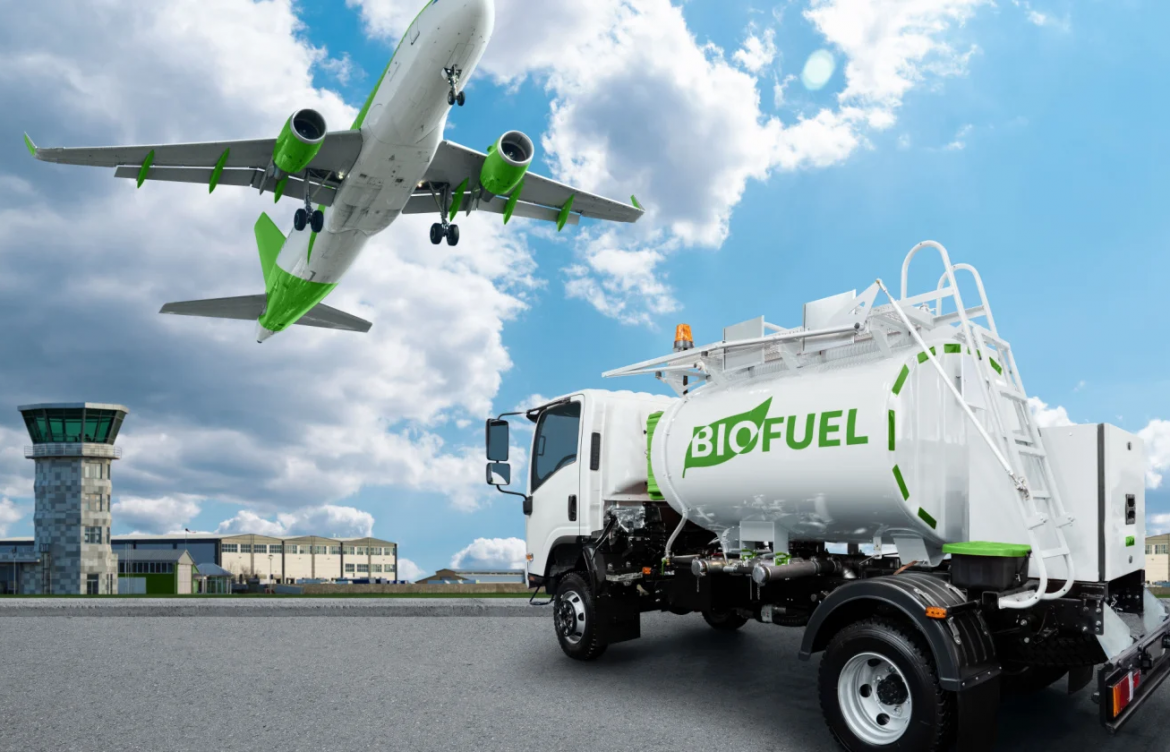
The Rise of Sustainable Aviation Fuel and Its Impact

The aviation industry is soaring towards a more sustainable future, driven by the urgent need to reduce its environmental footprint. One of the most promising solutions on the horizon is Sustainable Aviation Fuel (SAF). As the world grapples with the impacts of climate change, SAF is emerging as a key player in the quest for greener skies. In this blog, we’ll explore what Sustainable Aviation Fuel is, why it’s important, and how it’s transforming the aviation industry.
Understanding Sustainable Aviation Fuel
Sustainable Aviation Fuel, often abbreviated as SAF, is a type of biofuel specifically designed for use in aircraft. Unlike traditional jet fuel, which is derived from petroleum, SAF is produced from renewable resources such as agricultural waste, used cooking oil, and even algae. These renewable sources can significantly reduce the lifecycle carbon emissions compared to conventional fossil fuels.
Why Sustainable Aviation Fuel Matters
1. Reducing Carbon Emissions
The aviation industry is a significant contributor to global carbon emissions, accounting for about 2-3% of total CO2 emissions. SAF has the potential to reduce lifecycle greenhouse gas emissions by up to 80% compared to conventional jet fuel. This drastic reduction is crucial in helping the aviation sector meet international climate goals and reduce its overall environmental impact.
2. Enhancing Energy Security
Relying on a diverse array of feedstocks for SAF production can enhance energy security by reducing dependence on fossil fuels. This diversification helps mitigate the risks associated with oil price volatility and supply disruptions, ensuring a more stable and sustainable energy supply for the aviation industry.
3. Promoting Economic Growth
The production and adoption of SAF can stimulate economic growth by creating new industries and job opportunities. The development of SAF production facilities and supply chains can generate employment and drive investment in rural and urban areas, contributing to economic resilience and sustainability.
4. Improving Air Quality
Unlike conventional jet fuel, SAF produces fewer particulate emissions, which can improve air quality around airports and in the vicinity of flight paths. This reduction in air pollutants can have significant health benefits for communities living near major airports.
The Impact of Sustainable Aviation Fuel on the Industry
1. Airline Adoption and Commitments
Major airlines are increasingly committing to the use of SAF to power their fleets. Companies like Delta Air Lines, United Airlines, and British Airways have announced ambitious plans to integrate SAF into their operations. These commitments are often part of broader sustainability strategies aimed at achieving net-zero carbon emissions by mid-century.
2. Collaborations and Partnerships
The rise of SAF has spurred numerous collaborations and partnerships across the aviation industry. Airlines, fuel producers, and governments are working together to scale up SAF production and distribution. Initiatives like the Clean Skies for Tomorrow Coalition aim to accelerate the deployment of SAF and achieve significant emissions reductions in the aviation sector.
3. Technological Advancements
Ongoing research and development are driving technological advancements in SAF production. Innovations in feedstock processing, fuel synthesis, and distribution logistics are making SAF more efficient and cost-effective. These advancements are critical for increasing the availability and affordability of SAF, enabling broader adoption across the industry.
4. Regulatory Support
Government policies and regulations play a vital role in promoting the use of SAF. Incentives such as tax credits, grants, and subsidies can encourage investment in SAF production facilities and infrastructure. Regulatory frameworks that mandate or incentivize the use of SAF can further accelerate its adoption and integration into the aviation fuel mix.
Case Studies: Leading the Way with SAF
1. KLM Royal Dutch Airlines
KLM Royal Dutch Airlines has been at the forefront of SAF adoption, operating the world’s first commercial flight using biofuel in 2011. Since then, KLM has continued to expand its use of SAF, partnering with fuel producers and airports to develop a more sustainable aviation fuel supply chain.
2. Los Angeles International Airport (LAX)
Los Angeles International Airport (LAX) has become a hub for SAF initiatives. The airport has implemented programs to increase the availability and use of SAF, working with airlines and fuel suppliers to create a more sustainable aviation ecosystem. LAX’s efforts have set a benchmark for other airports worldwide.
Best Practices for Supporting Sustainable Aviation Fuel
To further support the rise of SAF, stakeholders can consider the following best practices:
- Invest in Research and Development: Continued investment in R&D is essential to improving SAF production processes and reducing costs.
- Foster Industry Collaboration: Collaboration between airlines, fuel producers, and regulatory bodies is crucial for scaling up SAF production and distribution.
- Promote Public Awareness: Increasing public awareness about the benefits of SAF can help build consumer support and drive demand for greener flights.
- Advocate for Supportive Policies: Engaging with policymakers to advocate for supportive regulations and incentives can accelerate the adoption of SAF.
Conclusion
Sustainable Aviation Fuel is poised to play a pivotal role in the future of aviation. By significantly reducing carbon emissions, enhancing energy security, and promoting economic growth, SAF represents a transformative solution for a more sustainable aviation industry. As airlines, governments, and fuel producers continue to invest in SAF, the vision of flying green is becoming a reality.
Embrace the potential of Sustainable Aviation Fuel and join the movement towards a greener, more sustainable future for aviation. The sky is no longer the limit—it’s just the beginning.
Meta Description:
Keywords: Sustainable Aviation Fuel, SAF, green aviation, carbon emissions, biofuel, aviation industry, airline sustainability, renewable energy